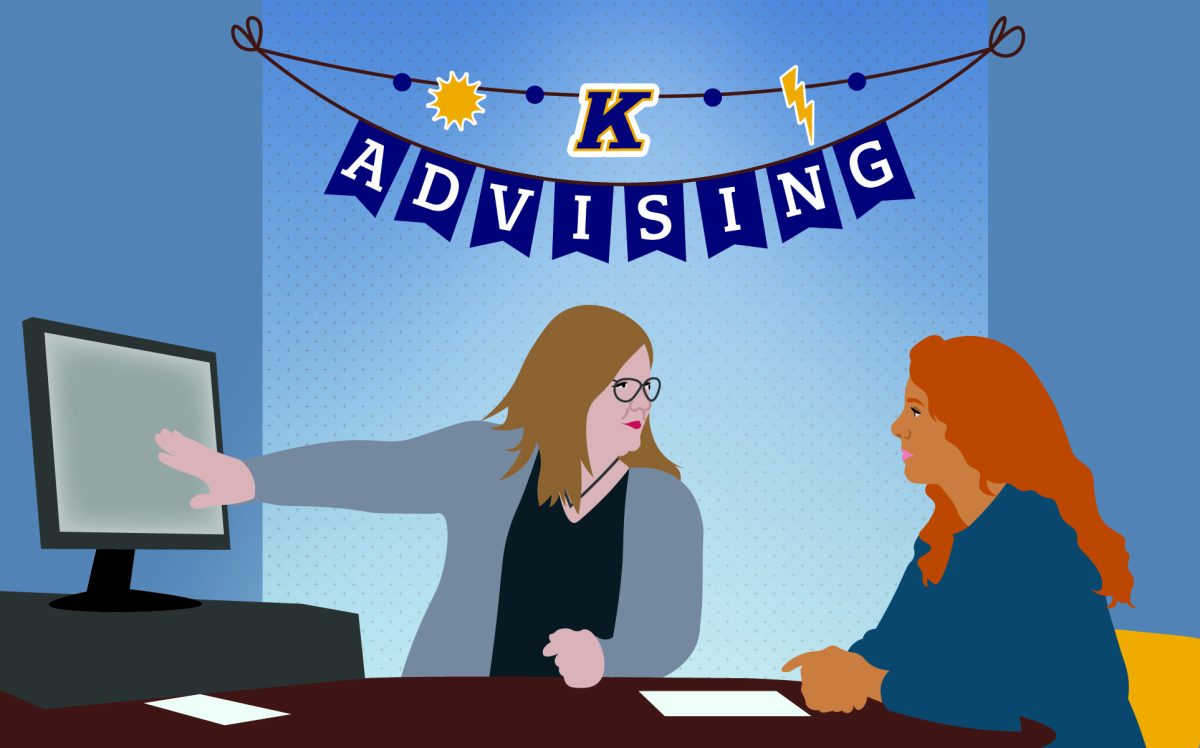As the weather cools and school work intensifies, students are beginning to think about the type of classes they want to take next semester.
Scheduling can be a stress-inducing experience since there are multiple factors to consider when selecting classes. It can also be a confusing process for students, especially those new to campus.
Alex Silverio, a senior academic advisor in the College of Communication and Information, explained that each student should know what date they are assigned to schedule, as everyone receives a unique date. Often, students who are athletes, members of the honors college or have Student Accessibility Service accommodations schedule earlier than other students. It then becomes a matter of how many credits the students have.
“Every college is probably going to have a little bit different populations of students that they’ll want to make sure to advise,” Silverio said.
For example, students who have majors in the College of Arts and Sciences are required to meet with their advisors until their sophomore year, while students with CCI majors should meet with their advisors each semester until they graduate, she said.
“So, just kind of know what the requirement is for your specific college that you’re in,” Silverio said.
She also discussed what factors should be considered when students select their classes for next semester, recommending they focus on fulfilling their major requirements before diving into general electives, citing that this varies for each major, as some are stricter than others when it comes to flexibility in their schedules.
“Sometimes, a pottery class sounds fun, or a [Physical Activity, Wellness and Sports course] … Sometimes you can fill out your schedule with those kinds of credits, and obviously, you need to talk with your advisor about whether that is possible. ‘Is that smart to do? How many can you actually fill your schedule with?’” she said. “You also need to be meeting some of the requirements for your major, Kent Cores and for additional major requirements.”
Silverio encouraged students to prepare before stepping into an advisor’s office by checking their Graduation Planning System located under the Student tab in Flashline.
She also recommended students use the Visual Schedule Builder as another tool, citing that they should create a few rough schedule options and bring them to the advisor meeting to ensure they have all the necessary classes.
She suggested that students should schedule advisor meetings as soon as possible. For example, a student met with Silverio, needing to graduate in time, but it wasn’t until their advising meeting that they realized their course times were conflicting.
“It’s important to meet early, so that we can figure out, ‘Oh, okay, so this is going to be a problem for this student, and probably for other students,’” she said.
Rachel Walter, a senior advisor in the College of Education, Health and Human Services, also offered insight on class recommendations and scheduling.
Similar to Silverio, Walter also encouraged students to check their GPS and their roadmap to determine what classes they might want to take next semester.
Before meeting with students, Walter checks that their credits from the previous semester were “earned properly” and that there is no missing course on file.
“Then, we prep by also reading our prior advising notes to make sure that if there’s anything that we need to bring up, anything that needs to be followed up upon,” Walter said.
In addition, she also shared that students should consider classes that will ultimately allow them to be successful.
If a student commutes from home, they should look at classes that would not require them to drive to campus more than a few times a week. An employed student might have limited time and will not be able to be flexible with their schedule. Walter even suggested that if a student is not a morning person, they should perhaps avoid classes around 7 a.m.
“I love it when students come in, and they’re like, ‘I looked at my plan; I looked at my GPS audit. I already made a plan in the Visual Schedule Builder, and it’s ready to go. I just need your approval.’ That’s awesome,” Walter said.
Walter’s class recommendations are not limited to communication, psychology, sociology and physical education courses, but even suggested her own class, Achieving Academic Success, which tackles time management, reading strategies, note-taking and other skills pertinent for a college student.
“Take it if you can get into it. This is kind of the time to really do that, where you can explore all that, and do it while you’re young, and life’s not too serious yet, hopefully,” Walter said.
Undergraduate student scheduling for the 2026 spring semester begins Oct. 1, 2025. Any additional questions about classes or scheduling can be answered through an appointment made with an academic advisor.
Ava Dunn is a reporter. Contact her at [email protected].


